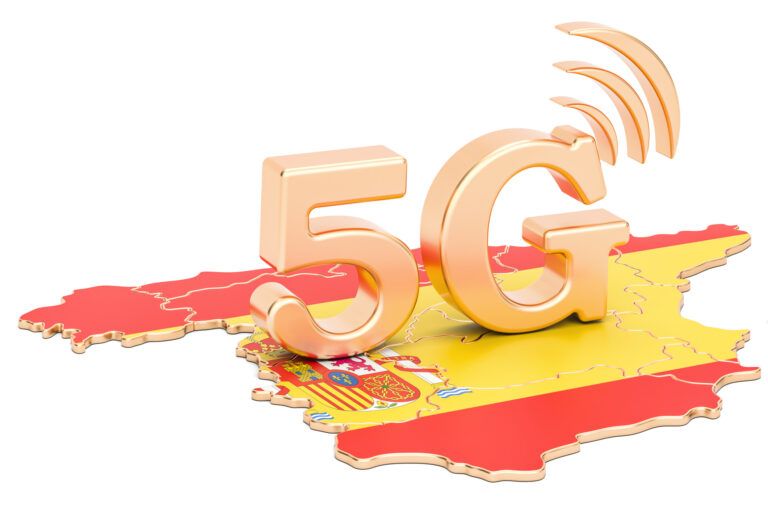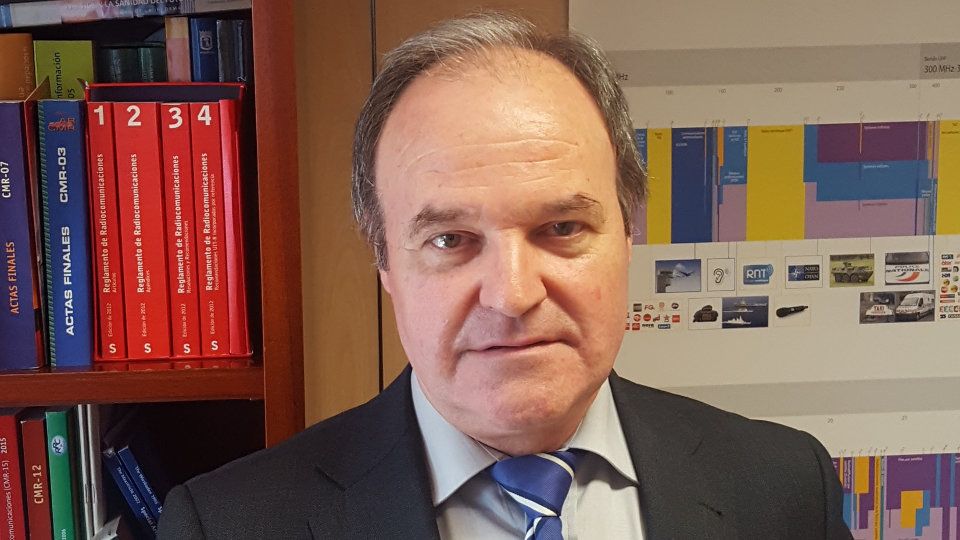
THE NEW ‘5G MAP OF SPAIN’ TO BE PRESENTED AT THE 5G FORUM 2024
-
Julia Criado, deputy head of the Subdirectorate of Planning and Management of the Radio Spectrum of the Ministry for Digital Transformation and Public Function, will open the inaugural day of the 5G Forum 24 on Monday, May 6, and will discuss the current situation of 5G connectivity in Spain and the future challenges for both 5G and 6G.
-
The 5G Forum 24 will also be attended by Antonio Fernández-Paniagua, Deputy Director General of Planning and Management of the Radio Spectrum of the Ministry for Digital Transformation and Civil Service.
The conclusions of the World Radiocommunications Conference held in November 2023 (WRC-23), the birth of MasOrange after the merger of the companies Orange and MásMóvil or the aids destined to 5G within the Recovery Plan, Transformation and Resilience Plan of the Government of Spain will be some of the topics that will be discussed by the Ministry for Digital Transformation and Public Administration at the seventh edition of the 5G Forum, “Where 5G leaders meet”, which will be held at the Nissan Cartuja Auditorium in Seville from May 6 to 10 in a hybrid format, with two face-to-face sessions -Monday 6 and Tuesday 7 May- and three virtual sessions -8, 9 and 10 May-.
Julia Criado, Deputy Head of the Radio Spectrum Planning and Management Subdirectorate, and Antonio Fernández-Paniagua, Deputy Director General of Radio Spectrum Planning and Management, will be present at the event.
‘5G map of Spain in 2024’.
The presentation of the new ‘Map of 5G in Spain in 2024’ will be one of the main attractions of the 5G Forum 24 and will be given by Julia Criado, deputy head of the Subdirectorate of Planning and Management of the Radio Spectrum of the Ministry for Digital Transformation and the Civil Service, who will describe the current situation of 5G connectivity in Spain, as well as the scenario in which the frequency bands for 5G are located and the future challenges for both 5G and the ambitious 6G.

Julia Criado, vice president of the European Commission’s radio spectrum policy group with 14 years of experience in the telecommunications sector, is leading the management of the transformation and development of 5G at the national level, which by 2023 already had a coverage reach of close to 83% throughout Spain.
Similarly, Antonio Fernández-Paniagua, Deputy Director General for Radio Spectrum Planning and Management of the Ministry for Digital Transformation and Public Administration, will also participate in the seventh edition of the 5G Forum: “With the work of the operators and the programs promoted by the Ministry, 5G will be developed in Spain in a very efficient way“, he said in the last edition.

These interventions have aroused much attention in all sectors, companies and professionals involved in 5G and the future 6G, as it marks the path of what will be the digital future of our country.
Birth of MasOrange
One of the major milestones in the telecommunications sector at national level has been the birth of MasOrange after the merger of the companies Orange and MásMóvil, becoming the leading company in the telecommunications sector in Spain by market share, as it will provide service to more than 30 million mobile customers, more than 7 million broadband customers and more than 2 million television customers. In March, the Council of Ministers already authorized the transaction, which was favorably reported by the Foreign Investment Board, while the Ministry for Digital Transformation and Public Function, through the Secretary of State for Telecommunications and Digital Infrastructures, also authorized the new joint entity to take control of the radio spectrum concessions held by Orange and MásMóvil.

As a pending requirement, given that this merger between equals exceeds the limits of frequencies to be used by the same operator or business group, the so-called ‘spectrum caps’, MasOrange still has several months ahead to transfer these ‘remedies’ to the company Digi, which has been selected by the European Commission to receive this surplus of frequencies in the newly born company and thus avoid a dominant position in the market.
Aid for Rural 5G
Among the Government’s projects in the expansion and development of 5G is the Universalization of Digital Infrastructures for Cohesion Program (UNICO), which aims to universalize access to ultra-fast broadband and extend 5G to rural areas of our country.
This program, financed with European Next Generation EU funds within the framework of the Recovery Plan and aligned with the objectives of the Digital Spain 2026 agenda, involves an investment of almost 1,000 million euros for the deployment of this technology in rural municipalities. One of the programs with the greatest impact on rural 5G connectivity is currently being processed: UNICO Redes 5G Activas (UNICO Active 5G Networks).
For its part, the UNICO Redes 5G Backhaul program, whose final resolution was published in October 2023, has involved aid in the amount of 448.8 million euros for projects presented by eight operators with the aim of providing fiber optic backhaul connections – including active and passive elements – to sites (towers) of public mobile telephony networks that do not have such connections in municipalities with less than 5,000 inhabitants.
Conclusions of the World Radiocommunication Conference 2023
The year 2023 concluded with the meeting of the Member States of the International Telecommunication Union (ITU) at the World Radiocommunication Conference 2023 (WRC-23) held in Dubai, which resulted in the approval of 43 new resolutions, the revision of 56 existing ones and the deletion of 33 of them. A total of 151 Member States signed the Final Acts, which, among other issues, include the identification of spectrum for International Mobile Telecommunications (IMT), essential for expanding broadband connectivity and developing services such as 4G, 5G and, in the future, 6G; as well as the identification of the 2 GHz and 2.6 GHz bands to use high-altitude platform stations as IMT base stations (HIBS), which will help bridge the digital divide in remote and rural areas and maintain connectivity during disasters.

Similarly, the conference identified new frequencies to provide high-speed broadband on board airplanes, ships, trains and vehicles; the implementation of electronic navigation systems to improve distress and safety communications at sea; or frequencies to improve weather forecasting and climate monitoring, among others.
The ‘5G Forum’ has established itself as a reference forum in the technology sector, as it is a unique showcase with a multidisciplinary vocation to publicize each year the use cases and success stories of operators, companies, universities and institutions.
All the presentations of this and previous editions can be viewed through ‘The Observatory’, the digital platform of Medina Media Events, where all the interventions will be available 24/365 for on-demand consumption, like Netflix, but free of charge.
The seventh edition of ‘5G Forum’ is organized by Medina Media Events and is supported by MasOrange, Telefónica, Red Hat, Netmetrix, Huawei, ZTE, Mavenir, OFG, Vicomtech, Wavecontrol, Axión, the University of Málaga (UMA), Viavi Solutions, Nokia, Rohde & Schwarz, Gradiant, Hispasat, Gsertel, AI Funded, Opossum and Gamma Solutions, among others.